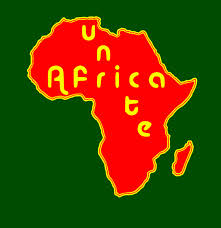Times of India Blogs
Rudroneel Ghoshin Talking Turkey
As reported by The Times of India today (October 29), the negotiations for the joint declaration of the India-Africa Forum Summit had hit a rough patch on the topic of ‘colonialism’. It was found that Algeria had inserted a line in the draft statement saying India and Africa would together fight colonialism. Not only was this a clear attempt to shame Morocco, the issue could have also scuttled the summit itself.
The issue stems from an old dispute over the Moroccan Sahara. The area was a Spanish exclave till the 1975 Madrid Accords divided the territory between Morocco and Mauritania.
In 1979, Mauritania relinquished its claims to the Sahara, enhancing Morocco’s sovereign right over the area. This sovereign right is underpinned by history that confirms that the people residing in this part of the Sahara had long sworn allegiance to the monarch of Morocco.
However, since 1975 a Sahrawi separatist group called Polisario Front, backed primarily by Algeria, has carried out an armed campaign for independence. In 1991 a ceasefire was reached between Morocco and Polisario allowing for the establishment of the United Nations Mission for the Referendum in Western Sahara or MINURSO.
However, much like the situation in Jammu & Kashmir the terms for a referendum in the Moroccan Sahara were never fulfilled, thanks to insincerity on the part of the Polisario and Algerian government. In fact, the Polisario camps in Tindouf in western Algeria haven’t even permitted a census of refugees. Besides, an investigative report by the European Anti-Fraud Office has found systematic diversion of EU aid to the refugee camps.
It’s pertinent to note that India acquiesced to the Moroccan position on the Sahara issue during the erstwhile Atal Bihari Vajpayee regime and de-recognised the Polisario-backed Sahrawi Arab Democratic Republic, which is nonetheless recognised by the African Union.
Plus, the decades-old dispute has lost traction today with Morocco doing much to develop the Sahara. Also, Morocco has emerged as a bulwark against extremism in Africa and enjoys extremely cordial relations with the US and EU.
Add to this the fact that Morocco today is championing South-South partnerships across Africa on the premise that African problems need African solutions. This, Morocco believes, is crucial to addressing issues of poverty and in turn tackling extremism in Africa.
During his speech at the India-Africa summit Morocco’s monarch King Mohammed VI stressed that South-South cooperation wasn’t a mere slogan or political luxury but a pressing need in light of the scale of challenges Africa faces. He further elaborated that Africa should learn to trust Africa and that the countries of the South should invest their assets and skills in the pursuit of shared progress.
This is congruent with Prime Minister Narendra Modi’s call at the summit for India and Africa to speak in one voice. Modi further stressed that the coming century could be India’s and Africa’s to shape if they work together and reaffirm their equitable partnership. No doubt India-Africa relations have had their ups and downs. But a bright future can be scripted if the page is turned on the legacy of the past and opportunities jointly explored.
This is precisely why India invited all 54 African nations for the summit to assert that we are united in our shared goals and should not allow past instances to hamper our collaboration towards addressing present challenges. That’s a message all African leaders will do well to heed.
DISCLAIMER : Views expressed above are the author’s own.

Rudroneel Ghosh
I am a Delhi-based journalist working for the Edit Page of The Times of India.







